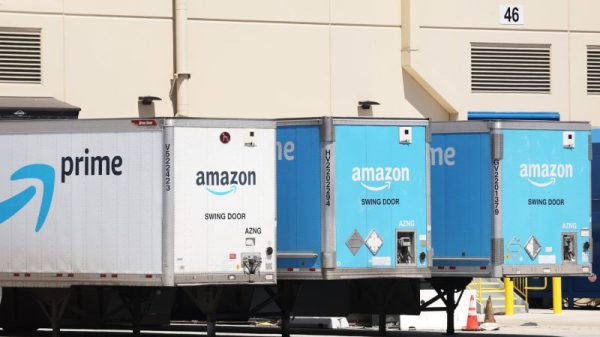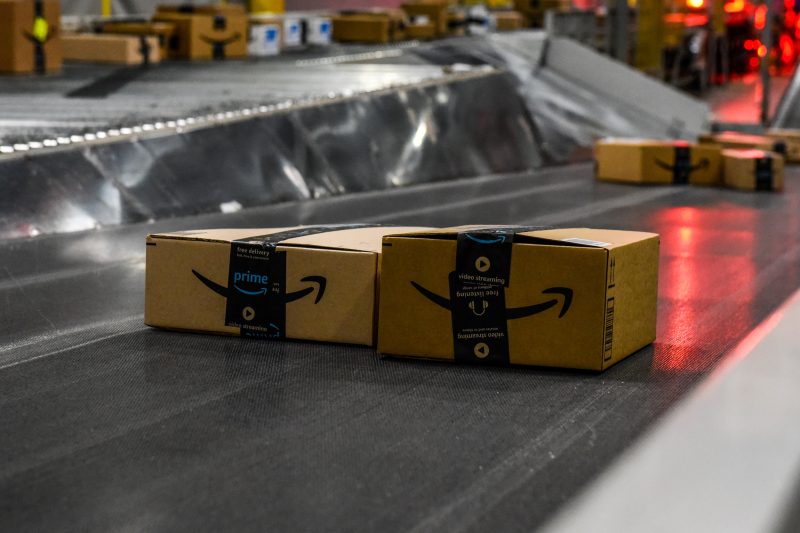Amazon used a secret algorithm that essentially helped the company raise prices on other online sites and “destroyed” some internal communications as the Federal Trade Commission was investigating the company, according to a newly unredacted portions of the agency’s antitrust lawsuit against the e-commerce giant.
The new excerpts, unveiled Thursday, alleged company executives intentionally deleted communication by using a feature on the popular app Signal that makes messages disappear. By doing this, the FTC said Amazon “destroyed more than two years” worth of communications from June 2019 to “at least early 2022” despite instructions it gave Amazon not to do so.
In a prepared statement Amazon spokesperson Tim Doyle called the FTC’s claim “baseless and irresponsible.”
“Amazon voluntarily disclosed employee Signal use to the FTC, painstakingly collected Signal conversations from its employees’ phones, and allowed agency staff to inspect those conversations even when they had nothing to do with the FTC’s investigation,” Doyle said.
The FTC and 17 states sued Amazon in September alleging the company was abusing its position in the marketplace to inflate prices on and off its platform, overcharge sellers and stifle competition. Amazon is accused of violating federal and state antitrust laws, but the company has responded with a full-throated defense of its business practices.
The antitrust case is the most aggressive move the government has taken to tame the market power of Amazon and comes as the FTC has been taking big swings against tech companies.
The unredacted excerpts of the lawsuit disclosed on Thursday also provided more details on a talked-about algorithm, which was previously reported by The Wall Street Journal and former Vox reporter Jason Del Ray.
The FTC’s excerpts say the tool — codenamed “Project Nessie” — has been used by Amazon to pinpoint products that will allow it to rake in more cash.
The company used it to predict where it can raise prices and have other shopping sites follow suit. Amazon activated the algorithm to raise prices on some products, and when other sites followed its lead, it kept the elevated prices in place, the agency said. The use of Nessie has generated more than $1 billion in excess profits for Amazon, according to the FTC.
“Aware of the public fallout it risks, Amazon has turned Project Nessie off during periods of heightened outside scrutiny and then back on when it thinks that no one is watching,” the complaint said.
The agency said Amazon deployed Project Nessie in 2014 and has turned it on and off at least eight times between 2015 and 2019. In 2018 alone, Amazon used the algorithm to set prices for items that were viewed more than 400 million times by shoppers, according to the complaint.
Regulators said though Amazon claims the algorithm is “currently paused,” the company has thought about running experiments in 2020 and 2021 to improve the effectiveness of Project Nessie. Doyle, the Amazon spokesperson, called Nessie an “old” pricing algorithm that’s being “grossly” mischaracterized by the agency.
“Nessie was used to try to stop our price matching from resulting in unusual outcomes where prices became so low that they were unsustainable,” he said. “The project ran for a few years on a subset of products, but didn’t work as intended, so we scrapped it several years ago.”
The unredacted portions of the lawsuit also shed more light on Amazon’s advertising business. The agency claimed then-CEO Jeff Bezos instructed executives to accept more junk ads — internally called “defects” — because the company could earn more money through increased advertising despite their presence being a headache for consumers.

































